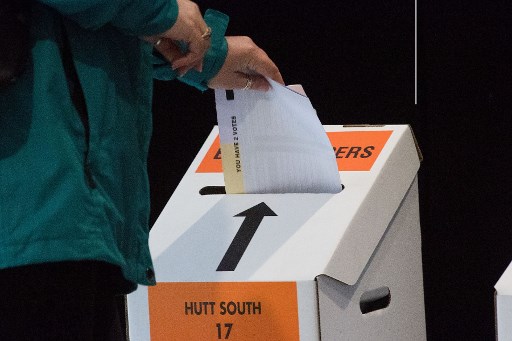
WELLINGTON, New Zealand | (AFP) – New Zealand Prime Minister Bill English said Monday he expects two or three weeks of “tense” negotiations with maverick MP Winston Peters to break the country’s general election deadlock.
Peters emerged as kingmaker in Saturday’s election after English’s conservative National Party and the Labour opposition led by Jacinda Ardern both failed to win an outright majority.
English was expected to struggle amid the “Jacinda-mania” hype surrounding the charismatic young opposition leader, but ended up out polling her by 46.0 percent to 35.8.
He said the fact that National finished just short of a majority put the party in a “pretty good” position to strike a deal with Peters, a populist 72-year-old political veteran.
“We now have the task of building on that clear indication from voters to make progress in a coherent, stable government,” he told Radio New Zealand.
English’s message of stability resonated with voters late in the campaign as he attacked the fiscal credibility of Ardern, 37, who became Labour leader just seven weeks before the election.
The result was 58 seats for National, three short of the 61 needed to win an outright majority. Labour took 45, rising to 52 if seats of its close ally the Greens are included.
It leaves both English and Ardern needing the nine seats held by Peters’ New Zealand First (NZF) party to reach the majority required to form government.
Ardern managed to secure Labour an extra 13 seats over its 2014 result, a remarkable feat considering she took over with the party polling at record lows.
She remained hopeful she could still become prime minister as part of a Labour-Greens-NZF coalition, saying supporters of all three parties had voted for change.
“Certainly I saw New Zealand First campaigning hard for change. Now it’s up to us to see if we can form a stable coalition government,” she told reporters.
‘Combative’ past
English, who is seeking a fourth term for National, refused to detail what he would offer Peters, who is known for his anti-immigration and protectionist policies.
He said Peters, who has been kingmaker in two previous elections, was an experienced negotiator who could be expected to drive a hard bargain.
“We want to have a respectful, constructive negotiation, which I know is going to be tense,” English said.
He said he had known Peters since 1990 and viewed him as a “maverick” with intimate knowledge of the workings of New Zealand politics.
Their past differences include English seconding a successful motion to expel Peters from the National party in 1992 over his outspoken views.
“Our relationship has been tested in a lot of different ways, sometimes with some real tension and combative politics, other times quite sociable and relaxed,” he said.
“He’s someone who understands his role, he’s not some new party that’s just come into parliament.”
Peters has given no indication about who he will support and has previously spoken about not making a decision by October 12, the date the final election results are officially announced.
English said he was comfortable with that timeframe.
“Everyone wants some indications of progress and I think two to three weeks is a reasonable period,” he said. “We have to spend time on this out of the light of the media.”
After the 1996 election, Peters kept the country waiting for seven weeks before installing a National-led government in return for being made deputy prime minister.
In 2005 he demanded the role of foreign minister to get the Labour Party across the line.
Despite the uncertainty surrounding the latest poll, financial markets were little changed Monday.
The New Zealand dollar edged down 0.32 US cents to 73.08 US cents and the benchmark NZX 50 index closed up 54.99 points or 0.70 percent to 7,869.77.
© Agence France-Presse








